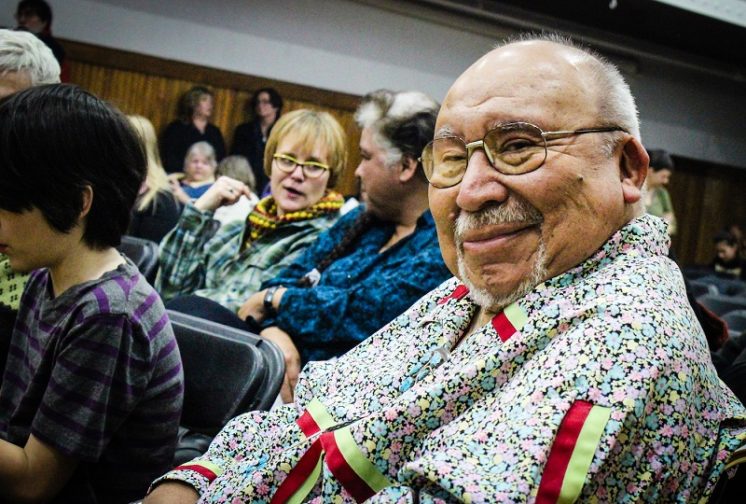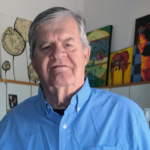R.I.P. Dr. Robert Powless
Dr. Robert Powless, former director of the American Indian Studies Program at the University of Minnesota Duluth, died on April 25.
The American Indian Community Housing Organization issued the following statement:
Dr. Powless has always supported AICHO’s mission, programs and initiatives. He and his wife Linda graciously financially supported our Gimaajii Mino Bimaadizimin permanent supportive housing program and helped in its development. According to Linda, one of his greatest accomplishments/recognitions was having Trepanier Hall renamed in his honor as the Dr. Robert Powless Cultural Center in 2017. Dr. Powless for years would come visit with Gimaajii residents, AICHO staff and visitors in the lobby a couple times a week. We stand with Dr. Powless’s family in their time of mourning. What an incredible and remarkable man Dr. Robert Powless was. He will always be close to us and countless American Indian families will continue to benefit from his stewardship and community minded actions. Miigwech Linda, Blair and family for sharing him with us – our thoughts and love are with you at this time.
Dr. Powless, “The Sunset Man,” was a member of the Oneida Nation of Wisconsin and life-long educator. He obtained his bachelor’s degree in Secondary Education at the University of Wisconsin-Madison in 1956. Shortly after graduation he enlisted with the Army and served as a medic in the Korean War in Korea. Returning to Wisconsin after the war, he became a high school coach and social studies teacher. He would go on to receive a master’s degree in counseling from his alma mater, University of Wisconsin-Madison. He also spent a year studying for the ministry and decided against it.
In 1971 his first job at the University of Minnesota was in student personnel. He eventually became director of the American Indian Studies Program. In 1971, American Indian veterans coming back to UMD on the GI Bill told the UMD administration there should be some programs for American Indian students and through that, Dr. Powless was brought to UMD and started to build the American Indian Studies Program from scratch. He worked there for five years, then spent four years at the College of St. Scholastica. He earned his PhD in 1977 from the University of Minnesota in Educational Administration and became president at Mount Senario College in Ladysmith, Wis. in 1981. In 1988 he returned to UMD as a full professor and director of American Indian Studies until his retirement in 2000.
Starting in 1982 and during this time at UMD, CSS and Mount Senario, he brought his American Indian students to do outreach with federal American Indian inmates at Sandstone State Prison.
After his retirement, he held a second career in volunteerism. He was a founding member of the National Indian Education Association. He served as a member of the Minnesota State Arts Board. He participated in the development of the Duluth Citizens Review Board and was on the Board for Center City Housing and was part of the development of San Marcos apartments. He was on the first Duluth American Indian Commission, now known as the Duluth Indigenous Commission, and Community Action Duluth. He was instrumental in the development of the American Indian Community Housing Organization’s Gimaajii Mino Bimaadizimin housing program by donating $50,000 to kick start it. Up until his death, he would visit AICHO once or twice a week and visit with housing residents and AICHO staff in the lobby.
Along with Ray Murdoch he co-produced a weekly television segment called “Indian View Point” from 1972 to ’82 for WDIO and WDSE.
Awards:
- Blayheart teaching award at UMD, 1996
- Clayton, Jackson, McGhie Foundation Award, 2010
- AICHO’s Trepanier Hall renamed Dr. Robert Powless Cultural Center, 2017
Recommended Links:
Leave a Comment
Only registered members can post a comment , Login / Register Here















No Comments